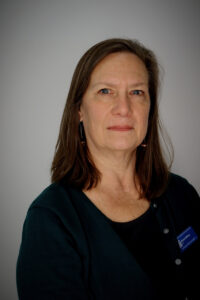Miriam Wallace, who first joined the MLA in 1986, is featured in our August member spotlight. Read about Miriam’s experience with how the MLA has evolved over the years and what impact MLA resources have had on her career:
“[T]he MLA has changed in some great ways—this is now the first place I go for professional advice and connections. The increase in professional panels at all levels from supporting graduate students to focusing on teaching to moving into academic leadership has been an important aspect of reinvigorating the organization. And I’m also heartened by efforts to represent the whole of our profession— we have groups focused on contingent labor, on 2-year colleges as well as 4-year, on regional universities as well as flagships. Especially in a moment when higher education is subject to attacks from all sides, any organization that matters needs to bring together voices from the full range of institutional types and those who work in them. And leveraging the MLA’s voice in concert with other learned societies for instance in joining the lawsuit to halt the demolition of the NEH is another sign of the power of our voices when joined together.”
Recommended resource: “For all those who are teaching regularly, I want to make a plea for including assignments that train students on working with the MLA Bibliography. First, it’s a great introduction to the entire conception of how to research a topic without simply going to a handy electronic collection. I started doing this years ago working with librarians—and it was revealing. Students were either going straight to JSTOR or to google.scholar (I used to just walk down the stacks)— and they really didn’t understand the limitations of those methods. Librarians sometimes offered too many options to students—by dialing into the bibliography we were able to focus on developing search skills (think a version of prompt engineering), showcasing developing areas of scholarship (ecocritical or disability focused or medical humanities work in say Victorian literatures), and starting to see themselves as in conversation with a larger scholarly world. And finally, while many of us depend on the bibliography (and we are lucky to be in a field where there’s a single very strong database like this), if our students aren’t using it, we may lose the resource on smaller, less-well-funded campuses as libraries track usage carefully in making budget decisions.”

